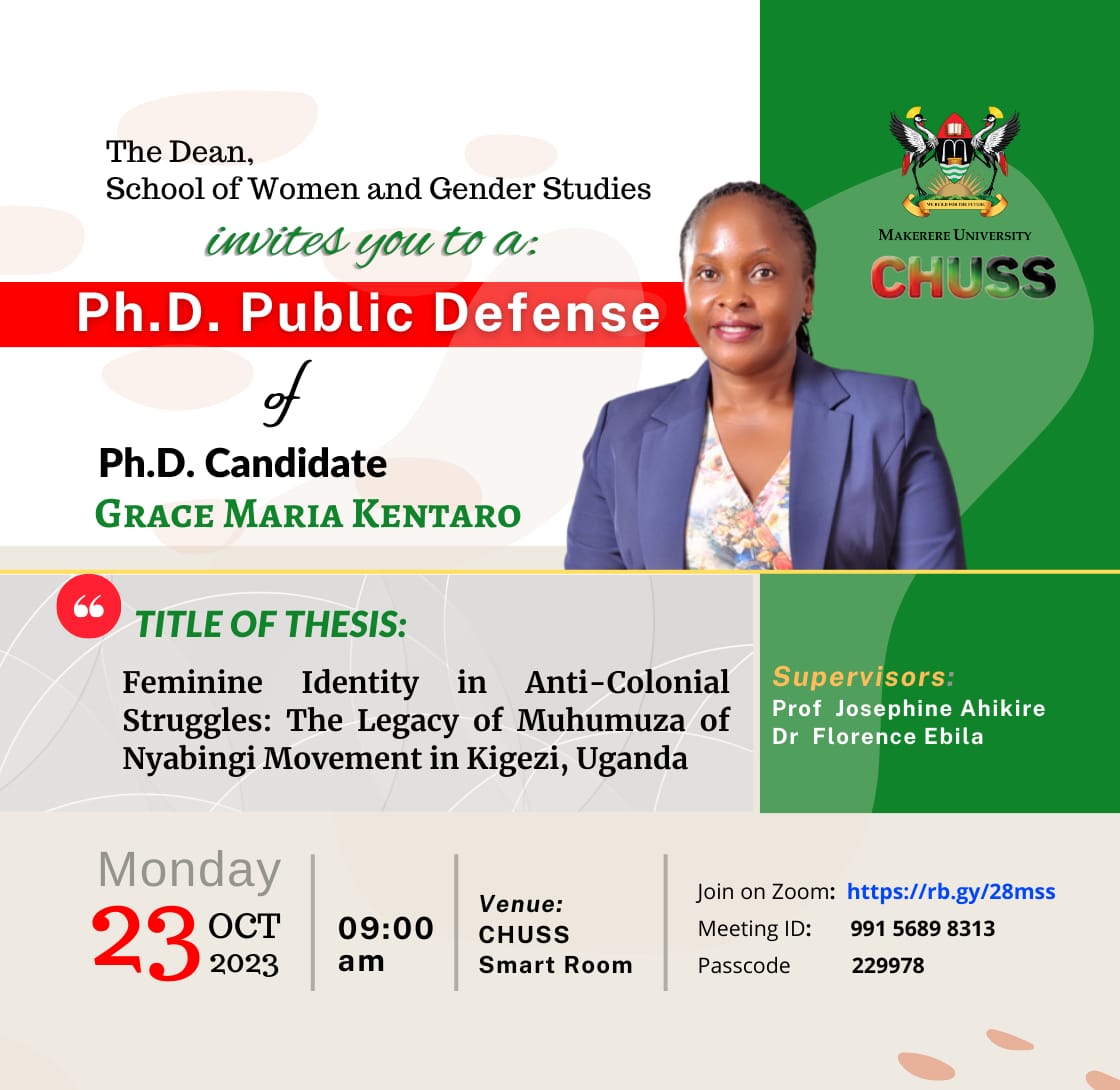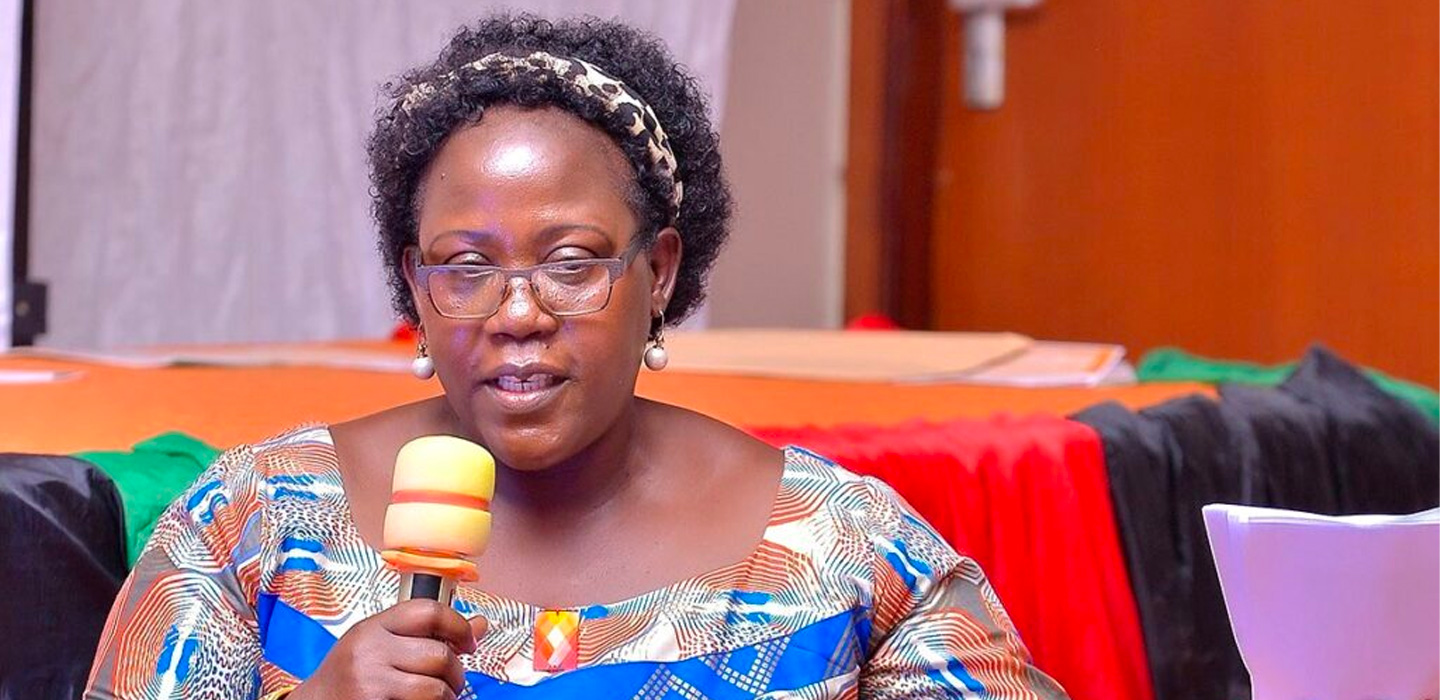A Public PhD Defense

FEMININE IDENTITY IN ANTI-COLONIAL STRUGGLES: THE LEGACY OF MUHUMUZA OF NYABINGI MOVEMENT IN KIGEZI, UGANDA
Candidate: KENTARO GRACE MARIA
Date: Monday,23rd October 2023
Time: 9:00am
Venue: CHUSS Smart Room
ABSTRACT
The study examines the feminine identity and rejects the long-held orthodoxy that silence and look at women as mere observers in affairs of the community. In this study I use Queen Muhumuza of Nyabingi Movement to illustrate the agency of women in the anti-colonial struggles in Africa. Approached qualitatively and anchoring on feminist poststructuralist theory and Feminist DecolonialTheory, I argue that African heroines of the anti-colonial struggles ought to be acknowledged and documented since they played unforgettable role in the organization, leadership and execution of anti-colonial struggles as exemplified by Muhumuza. Guided by four objectives: to locate Muhumuza in the anti-colonial struggles, to discuss the origins of the Nyabingi Movement as an anti-colonial struggle under Muhumuza in the history of Kigezi, to examine the transition of Muhumuza’s Nyabingi into a spiritual movement during the anti-colonial struggles, and to examine the portrayal women’s roles in anti-colonial struggles in Uganda, the study found out that women played leadership, organizational and militant roles in anti-colonial struggles despite their silence in available literature. Employing oral history and archival research the study further shows that Muhumuza played a commendable work as a feminist identity manifested by her advocacy for gender equity, women’s rights, and the recognition and empowerment of women’s voices, experiences, and agency in anti-colonial struggles in Uganda. Her resistance particularly against the Germans in Tanzania, Belgians in Rwanda and against the British in Kigezi region of Uganda proves her determination to liberate not only women from patriarchal tendencies but also liberation of all local communities that were being oppressed by the colonial powers despite being a feminine identity in the male dominated filed. Muhumuza’s death in 1945 did not cease her previous actions but rather revolutionized the women involvement in the anti-colonial struggles and hence this was the genesis for comprehensive struggles for liberation of Uganda as a sovereign nation. The study concludes that despite limited documentation, Muhumuza leadership unquestionably left a mark as a true feminist identity and a pioneer feminine identity who steadily united the followers to defend their rights and posed a resistance against various colonial rulers’ agonizing demands. The study concludes that Muhumuza was a charismatic, diplomatic, fearless and eloquent leader who managed to fight a multinational resistance against the British, the Germans and Belgians. Muhumuza as a female in a male field defied the norms of the time by participating in anticolonial struggles using religion as a tool to fight and threaten the three international powers or colonialists. This means that Muhumuza’s leadership definitely left a mark as a true feminine identity who defended the rights of all Banyakigezi. Therefore, this study documents the legacy of Muhumuza and recommends documentation of several women heroines in different spheres of life.
